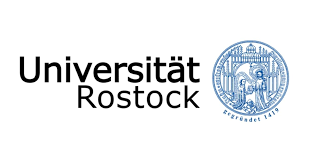University of Rostock

With its 200,000 inhabitants, Rostock is characterised scientifically, economically and culturally by 15,000 students and a work force of 5,000 in the university and university clinic. External funding raised for research rose between 2005 and 2010 by 83% and currently stands above 47 million Euros per year. The University of Rostock is among the ten most founder-friendly higher education establishments in Germany. The regional economy has benefitted from the over 800 start-up companies launched from the university since 1991. Young people from the West of Germany and increasing numbers of foreign students are discovering Rostock as a study location. Students from 99 countries can be found meanwhile on the four campus locations in the city. Since 1991 over 500 million Euros has been invested in the infrastructure of the university. By 2015 it will total 750 million.
Cutting-edge Research - The four profile lines
In 2007 the University of Rostock gathered its research capacities into three profile lines In 2010 a fourth was added. Each profile line commands its own department. Together the four departments form the Interdisciplinary Faculty (INF) – a novelty in German university history. From fundamental research, Life, Light & Matter (LLM) develops new concepts for future technologies based on atomic and molecular processes in connection with laser optics and life sciences. Maritime Systems unites oceanographers, engineers, humanities scholars, agricultural and social scientists, economists and lawyers. They develop scenarios and strategies for the coastal residential and economic area and give answers to complex questions of future civilisation. Aging of individuals and society has as its target a self-determined lifestyle in old age. Forms of medical provision and therapy are researched, particularly with regard to technical assistance systems. The newest profile line, Knowledge – Culture – Transformation, deals with media and the representation of knowledge, transformation of knowledge, knowledge and interculturalism as well as knowledge and power. Highly specialised master courses benefit from cutting-edge research in the profile lines.